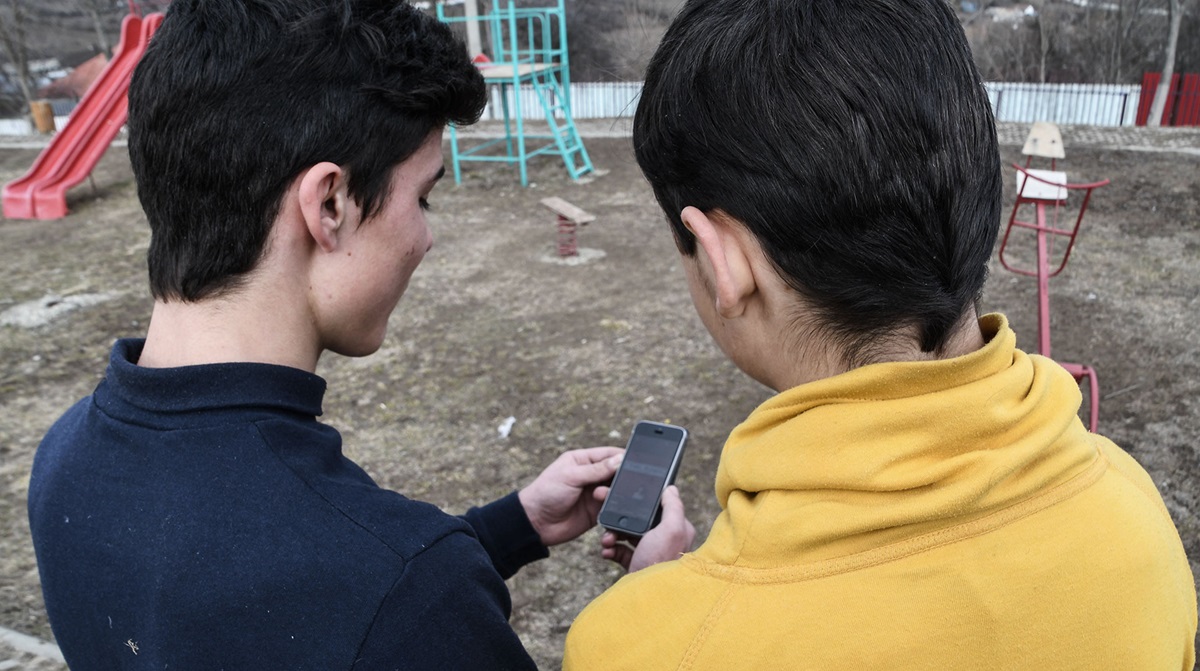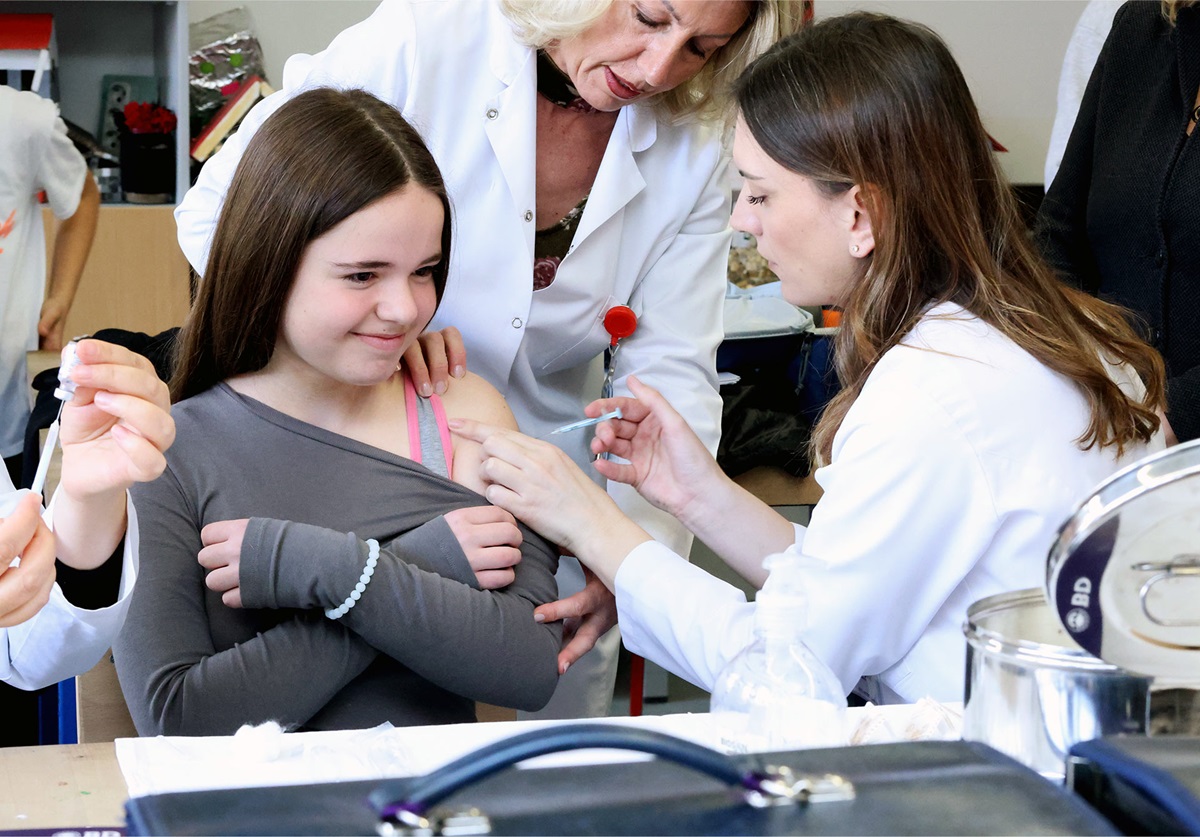No images? Click here
One in six school-aged children experiences cyberbullying, finds new WHO/Europe study
27-03-2024
WHO/Europe today released the second volume of the Health Behaviour in School-aged Children (HBSC) study, which focuses on patterns of bullying and peer violence among adolescents across 44 countries and regions. While the overall trends in school bullying have remained stable since 2018, cyberbullying has increased, magnified by the increasing digitalization of young people’s interactions, with potentially profound impacts on young lives. The findings reveal gender differences in bullying behaviour. Boys exhibit a higher tendency towards aggression and engagement in physical fights, underscoring the urgent need for interventions focused on emotional regulation and positive social interactions. Conversely, the increase in bullying among girls, especially through cyberbullying, calls for targeted gender-sensitive solutions that promote digital safety, empathy, and inclusive school cultures.
World Health Day 2024: My health, my right
07 April 2024
The WHO Council on the Economics of Health for All has found that at least 140 countries recognize health as a human right in their constitutions. Yet far too many are not passing and putting into practice laws to ensure their populations are entitled to access health services. This underpins the fact that at least 4.5 billion people – more than half of the world’s population – were not fully covered by essential health services in 2021. To address these challenges, the theme for World Health Day 2024 is “My health, my right”.
COVID-19
WHO renews partnership with UK Collaborating Centre, enhancing biosafety training globally
19-03-2024
Increasing Recognition, Research and Rehabilitation for Post COVID-19 Condition (long COVID)
WHO remains committed to learning more about long COVID and to finding ways to improve the medium- and long-term outcomes for people affected by it.
Partnering with the European Union to support deployment of COVID-19 vaccines and vaccination
The EU and WHO/Europe together provide critical assistance to Member States of the WHO European Region to ensure local readiness for safe and effective vaccination campaigns against COVID-19
UKRAINE EMERGENCY
Helping to improve laboratory services in emergencies, through global partnerships
22-03-2024

22-03-2024
Nearly 7000 excess deaths from tuberculosis (TB) occurred in the WHO European Region in the 3 years of the COVID-19 pandemic (2020–2022) compared to what experts had expected based on pre-2020 estimates. This increased mortality was a direct result of the pandemic – it would not have occurred if TB diagnosis and treatment efforts had not been disrupted. This sobering revelation comes via the latest TB surveillance and monitoring report from WHO/Europe and the European Centre for Disease Prevention and Control (ECDC). The report highlights the most recent data, showing a region recovering from, but still experiencing, the impact of the pandemic on TB testing, diagnosis and care. The WHO/Europe–ECDC report is released annually in anticipation of World TB Day, which takes place on 24 March.
Helping to improve laboratory services in emergencies, through global partnerships
22-03-2024
Skills gaps hinder full use of behavioural and cultural insights, WHO/Europe and ECDC study says
14-03-2024
Providing rapid access to assistive technology in times of war – lessons learned from Ukraine
13-03-2024
Digital tools can help improve women’s health and promote gender equality, WHO report shows
08-03-2024

REGIONAL DIRECTOR
22-03-2024
Today, tuberculosis is preventable, treatable and curable. On the one hand, this knowledge saddens me when I think of the many people falling ill with TB in the WHO European Region – some 230 000 every year, according to most recent data. On the other hand, it sparks hope knowing that ahead of us lies a future free of TB. Under the latest WHO guidelines, most TB patients find the treatment process more comfortable and easier to complete. They are mainly treated at home, avoiding lengthy hospitalization or daily visits to a clinic; instead they receive video calls from health workers to support them taking their medicines – now all oral. This puts people at the centre of care and eliminates stigma and discrimination. Drug-resistant TB treatment used to take 18 months with only a 55% success rate. Treatment now takes only 6 months in most cases and success rates are set to rise, thanks to new drugs. This is a revolution!

04-04-2024
As of 20 February 2024, all girls aged 12 in Kosovo* are eligible to receive the human papillomavirus (HPV) vaccine for lifelong protection from cervical cancer. To comprehensively roll out the vaccine, Pristina health authorities launched a vaccination campaign at schools aiming to reach over 12 000 girls in 2024; 116 doses have already been administered during the first 2 days of the campaign. While most of these girls will be vaccinated in schools, health workers will also go door-to-door to reach girls from minority Roma, Ashkali, and Egyptian communities, who may have less contact with health and education systems. “I want only the best for my daughter,” said Shqipe Doli, parent of one of the vaccinated girls. “I am very happy that now girls in Kosovo* have a chance to prevent this deadly cancer. Please don’t miss your chance; vaccinate your children.” Cervical cancer, often referred to as the silent killer, is the most prevalent form of cancer among women in Kosovo*, responsible for over 90% of cancer-related deaths among women, despite being almost entirely preventable.
Ukrainians are drinking less alcohol and support stronger regulations, new survey finds
22-03-2024
Global Health Security and Pandemic Preparedness Programme launches in Kyrgyzstan
19-03-2024
Advancing data and digital solutions for better health in Moldova
13-03-2024
Commercial interests a barrier to promoting health in Europe, Belgium reiterates
12-03-2024

EVENTS
Reimagining an economy for resilient and healthier societies that leave no one behind
9 April 2024 Venice, Italy. 12:30-19:00 CEST
Tenth High-level Meeting of the Small Countries Initiative: converging on small-country health priorities
11 – 12 April 2024 Limassol, Cyprus
European Immunization Week 2024
21 – 27 April 2024
Summer school: Systems thinking and innovation for the prevention of noncommunicable diseases and a healthy ageing population in the WHO European Region
16 – 19 July 2024, Nice, France
15th conference of the European network for the promotion of health-enhancing physical activity (HEPA Europe)
19 – 21 August 2024, Dublin, Ireland








